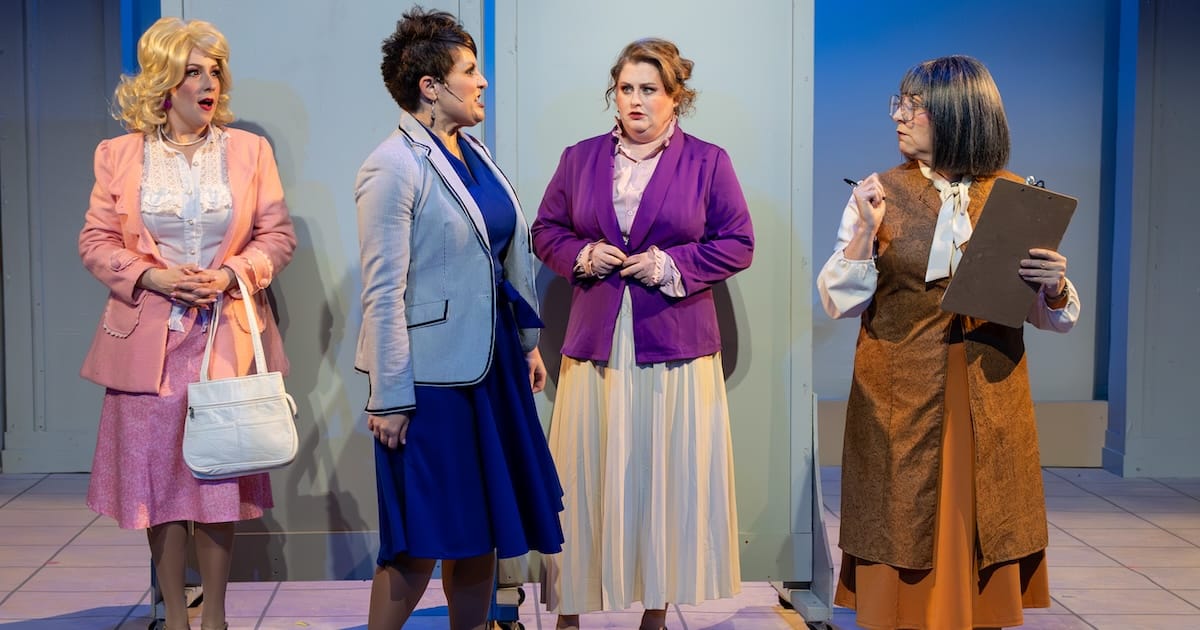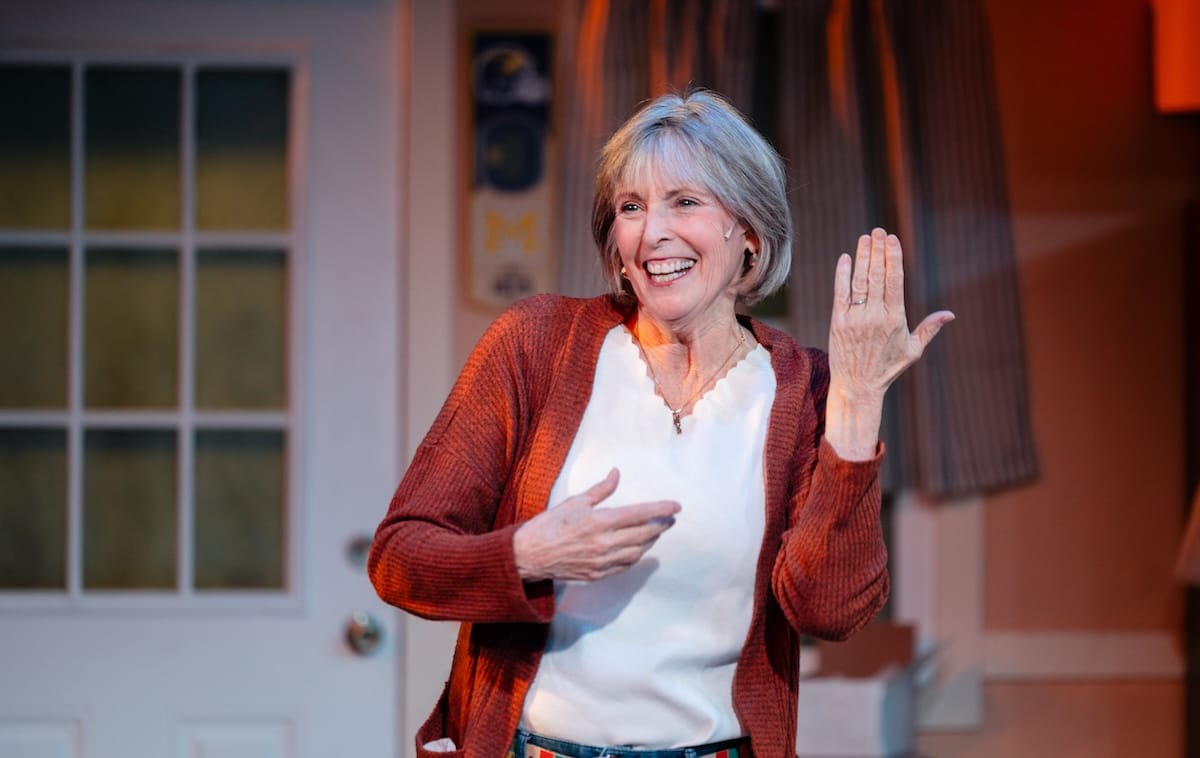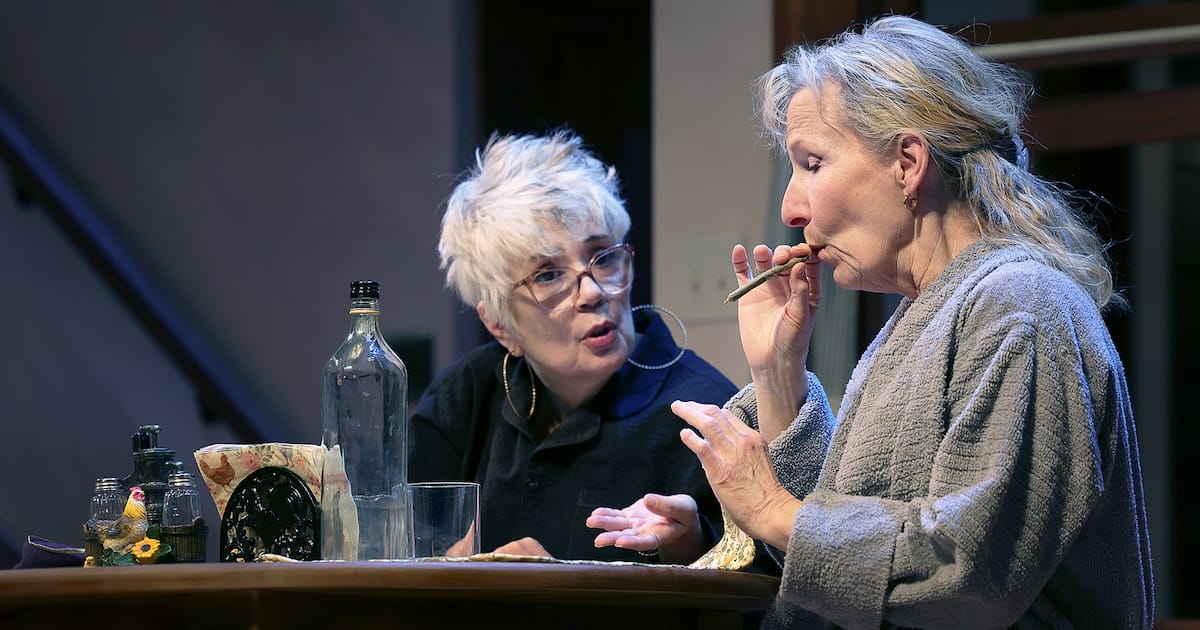George Clooney and Adam Sandler shine in Baumbach’s reflective, somber comedy about legacy.
Noah Baumbach’s Jay Kelly, which screened at the Holiday Theater during the 48th Denver Film Festival, is a melancholic musing on celebrity and its cost.
The film follows a movie star who’s realized that a career spent pretending to feel has left him uncertain what authenticity is supposed to look like. It’s a theme Baumbach has touched on before (self-absorbed artists and fractured families populate his filmography), but Jay Kelly marks a shift from ironic detachment toward something more earnest and open-hearted.
While the film is less piercingly structured than Marriage Story or as formally ambitious as White Noise, it’s never less than absorbing, thanks to its performances and Baumbach’s precise direction. The story centers on Jay Kelly (George Clooney), an aging actor whose career is as carefully managed as his insecurities.
After the death of the director who launched him, Jay spirals into self-reflection, picking at old wounds as he travels through Europe with his manager, Ron (Adam Sandler). A chance reunion with a jealous former classmate (Billy Crudup) leads to a public fight and private reckoning, while Jay’s attempts to reconnect with his estranged daughters unspool into awkward missteps.
In classic Baumbach fashion, the plot unfolds through sharp dialogue and emotional slip-ups rather than grand events. Jay Kelly is a film about a man who can reshoot every scene of his career but can’t edit his own life. That concept serves as both its engine and its trap: The film moves in loops of regret that can feel meandering at times, but Baumbach keeps you invested by grounding the film in witty interplay and emotional truth within Jay’s circle of self-reflection.
Top-notch performances
The film opens with a sweeping tracking shot through a soundstage, capturing the moment before the final take of Jay’s latest movie. When the dog in the scene appears too early, Jay insists on another shot, the first of many times he will request a redo. That phrase, “another shot,” becomes both a literal and existential refrain, emblematic of a man who’s never satisfied, even at the top of his game.
Clooney taps into his own persona as a beloved movie star who suspects he’s become a brand instead of a person. His Jay Kelly is vain, funny and deeply lonely. Clooney plays him with just enough distance to suggest self-awareness but never enough to absolve him.
If Clooney is the film’s narrative center, Adam Sandler is its heart. As Ron, Jay’s manager and quasi-caregiver, Sandler gives his most vulnerable performance since Uncut Gems. His voice cracks when he asks his wife (Greta Gerwig) over the phone, “Just tell me you love me,” and her silence hangs heavier than any melodrama. Sandler turns Ron’s habitual apology into a form of faith: If he serves his client well enough, maybe someone will finally thank him.
The supporting cast is full of quiet standouts. Laura Dern, who plays Jay’s publicist Liz, makes the most of her few scenes as she becomes overwhelmed by her client’s childlike behavior and how it has negatively impacted her life. Crudup brings a simmering resentment to Timothy, whose every smile feels like a threat as Jay’s spurned former acting school friend.
Riley Keough and Grace Edwards, as Jay’s two daughters, anchor the film’s emotional stakes; one has moved on, and the other is trying to escape before the damage sets in. And Stacy Keach, as Jay’s father, is brutal and brilliant as an aging man’s man who is disappointed by his son’s life choices, even publicly stating at one point that he would not “grab a beer” with Jay.
The craft of Jay Kelly
Baumbach’s direction is quietly formal and frequently inventive. In one of the film’s most inspired devices, Baumbach lets Jay literally walk through doorways into his past. Each door depicts a scene from his earlier life, such as an argument with his former mentor, when Jay betrayed his friend at an audition, and a moment of cowardice with his daughter at a therapy session, as if they were reels from an unfinished film.
Sometimes Jay watches silently; other times, he winces or mutters under his breath, unable to change what’s already happened. These sequences blur the line between memory and performance, turning self-reflection into cinematic spectacle.
Visually, Jay Kelly is Baumbach’s most lavish film to date. Cinematographer Linus Sandgren bathes the European landscapes in soft, overcast light that feels half romantic, half regretful. Nicholas Britell’s score leans towards haunting orchestral suites, punctuating scenes of travel and silence without sentimentality. Baumbach’s collaboration with editor Valerio Bonelli gives the film its graceful, sliding tempo, in which each cut feels like a memory surfacing too late.
The pacing and structure of the script, co-written by Baumbach and Emily Mortimer, are the film’s weak points. During the first act (before the device of Jay walking through doors to scenes from his past is introduced), the film drags significantly, resulting in a slow start, and some subplots (such as Liz and Ron’s past romance) feel vestigial.
Still, the script’s eye for painful absurdity keeps the film anchored. A scene where Jay becomes a viral hero after chasing a thief off a train is darkly comic and utterly on brand for a man who needs a camera to justify his conscience.
The final take
The film’s emotional peak comes in its closing scenes, set at a glittering tribute in Tuscany meant to honor Jay’s decades in film. By this point, nearly everyone has left him, including his daughters, his father and even most of his entourage. Only Ron remains, weary but loyal, agreeing to accompany Jay to the tribute as a friend despite quitting as his manager.
The two sit side by side as clips from Jay’s career (drawn from Clooney’s own filmography) flash across the screen, recasting images of triumph and youth as ghosts. The camera lingers on Clooney’s face, flickering in the projector’s light, his smile brittle as applause swells around him, as his mind wanders, reflecting on a memory of his daughters performing.
Sandler’s work in these moments is quietly devastating. As Ron, he radiates both pride and exhaustion, a man who has spent his life orbiting someone else’s spotlight. When Jay reaches over and grips his hand, the gesture is wordless but monumental—an acknowledgment that their bond has outlasted contracts, fame and the illusions both men have built. Sandler brims with unspoken emotions such as gratitude, exhaustion and love as tears stream down his cheek.
Clooney, meanwhile, delivers a haunting portrayal of self-awareness curdling into self-doubt. Watching his own highlights projected back at him, Jay realizes that his life, edited into soundbites and clips, has been one long performance.
The illusion collapses in the film’s final image: Jay staring directly into the camera, whispering, “Let’s do another shot.” It’s the same phrase he uttered on set in the film’s opening, but now it lands differently. It is not so much a desire for perfection as it is a futile plea to redo certain moments.
Jay Kelly won’t resonate with everyone. Those unmoved by the insecurities of wealthy actors or the rituals of show business may find its self-examination indulgent. However, for those who are drawn to stories about the fragility of fame or Baumbach’s ongoing fascination with the performative nature of life, this is a quietly mesmerizing film that is well worth seeing.
A Colorado-based arts reporter originally from Mineola, Texas, who writes about the changing world of theater and culture, with a focus on the financial realities of art production, emerging forms and arts leadership. He’s the Managing Editor of Bucket List Community Cafe, a contributor to Denver Westword and Estes Valley Voice, resident storyteller for the Bonfils-Stanton Foundation and co-host of the OnStage Colorado Podcast. He holds an MBA and an MA in Theatre & Performance Studies from CU Boulder, and his reporting and reviews combine business and artistic expertise.





Leave A Comment